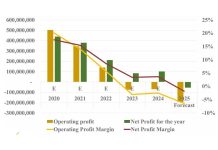Dr Uche Igwe
Africa-Press – Eswatini. Cryptocurrencies and digital assets have been promoted as alternatives to traditional bank accounts in Africa. Uche Igwe explains that despite their popularity, many people in Africa still view crypto currencies with suspicion.
Africa has a high proportion of financially excluded people. In 2021, the World Bank estimated that 57 per cent of the population of the African continent did not hold a traditional bank account. In Nigeria alone, an estimated 64 million people remain unbanked. Only 37 per cent of women have a bank account compared to 48 per cent of men, leaving a significant gender gap in financial inclusion.
These unbanked individuals save money at home, resulting in a loss of income from interest accrued by depositing the money in a formal account. Financial exclusion exacerbates rural poverty and erodes the capacity of individuals and households to withstand shocks. It limits their capacity to save, invest to insure against risks, and participate meaningfully in poverty reduction efforts.
By capturing them in the financial net through technology, these individuals can become drivers of economic progress by enabling ripple effects of economic growth that can lift communities out of poverty. Financial inclusion must be given increased attention to propel Africa towards shared prosperity by laying a foundation for an inclusive future. Cryptocurrencies offer access to financial services without relying on traditional banking infrastructures. However, there are those who insist that there is a mismatch between what crypto can actually provide and the needs of the groups it purports to serve.
The digitisation of Africa is an asset
Africa is one of the fastest-growing cryptocurrency markets in the world, with Kenya, Nigeria, and South Africa having the largest number of users in the region. About 10.34 per cent of Nigerians, approximately 22 million persons, own crypto assets.
As of 2023, there were about 527 million mobile phone subscribers in Africa, while another 290 million people had mobile internet connectivity. With a substantial customer base and a limited presence of brick-and-mortar banks, technology has to be a transformative force. Technology-powered African financial systems could surpass the conventional banking model, thereby positioning themselves in the global arena. This lack of an attachment to physical banking could prove a boost to crypto.
Digital payments have tremendous potential on the continent, with increasing smartphone penetration and improving digital infrastructure. Nigeria has 218 million mobile subscribers at the end of 2023, making it the biggest mobile market on the continent. Financial inclusion and digital transformation point to Africa’s future with excitement.
Crypto currency enthusiasts insist that it holds significant potential to transform the financial landscape in regions like Africa, where traditional banking systems fall short.
Crypto transactions are cheaper and faster
Traditional banking in Africa faces enormous challenges, including inadequate infrastructure, high operating costs, and stringent regulatory requirements. Cryptocurrencies offer alternatives by leveraging mobile technology and decentralized networks to provide financial services to the unbanked and under-banked population. It offers faster, more secure, and cheaper transactions by bypassing traditional banking channels and insulating them from exchange rate fluctuations. By enabling peer-to-peer transactions without intermediaries, cost efficiency is assured, which is beneficial to small businesses and promotes entrepreneurship.
The feedback is mixed. Many private entities are optimistic, while governments remain apprehensive and sometimes hostile. Policymakers are worried that cryptocurrencies can be used to transfer funds out of the region or circumvent rules. There are concerns about the potential negative use of cryptocurrency for money laundering, terrorist financing, and other forms of fraud, including foreign exchange speculation.
Until recently, the regulatory environment in Nigeria for cryptocurrencies and other digital assets was hazy. The regulatory environment was initially hostile, which led to a crackdown on operators, but it was later relaxed. Both the Central Bank of Nigeria and the Securities and Exchange Commission issued different and at times conflicting regulations. Recently, the Nigerian government cracked down on crypto-currency operators after accusing Binance, a crypto-currency trading platform, of enabling currency manipulation, which might have contributed to the devaluation of the naira. The Economic and Financial Crimes Commission reportedly closed 105 accounts across nine fintech companies accused of unauthorised foreign exchange trading, including money laundering. However, with the passage of the Nigerian Investment and Securities Bill, there may be legal certainty in the regulatory landscape.
Regulations need to be strengthened while improving education
The government of Kenya has a more open and exploratory approach to cryptocurrency regulation. The initial scepticism and outright opposition to the use of cryptocurrency that was prevalent in the country have been replaced with a clear strategy to explore the potential and risks of blockchain technology and how they could be leveraged for the improvement of government services. A comprehensive, fair, and competitive regulatory framework aimed at licensing, consumer protection, and cybersecurity is currently being pursued in the sector. A policy known as the National Policy on Virtual Assets and Virtual Assets Providers, as well as a Virtual Assets Service Providers Bill, is awaiting passage in Parliament. There are lessons to learn from the evolving regulatory landscape. The idea of crypto currencies is still viewed with suspicion despite its popularity in the continent. Education is therefore important. Governments in Africa need to raise public awareness that brings to light the benefits as well as risks of owning and operating digital financial assets.
LSE
For More News And Analysis About Eswatini Follow Africa-Press







